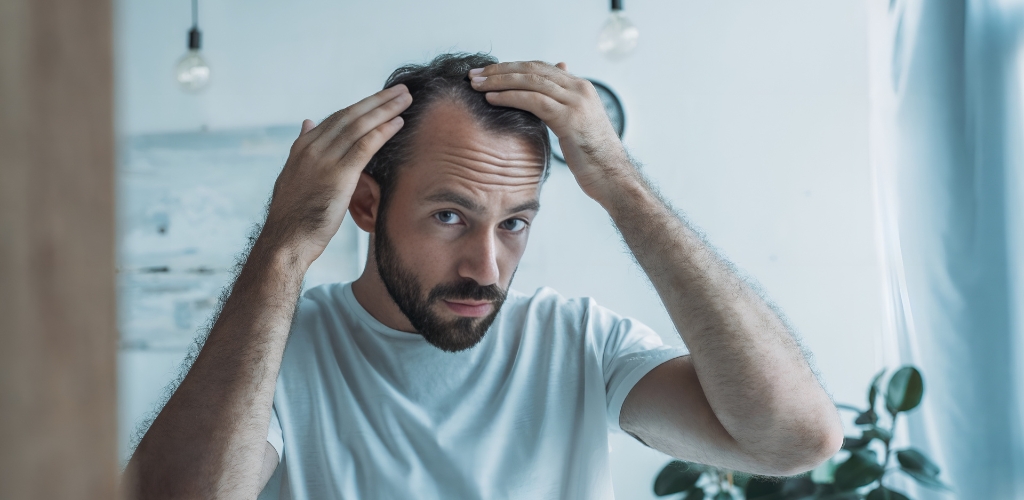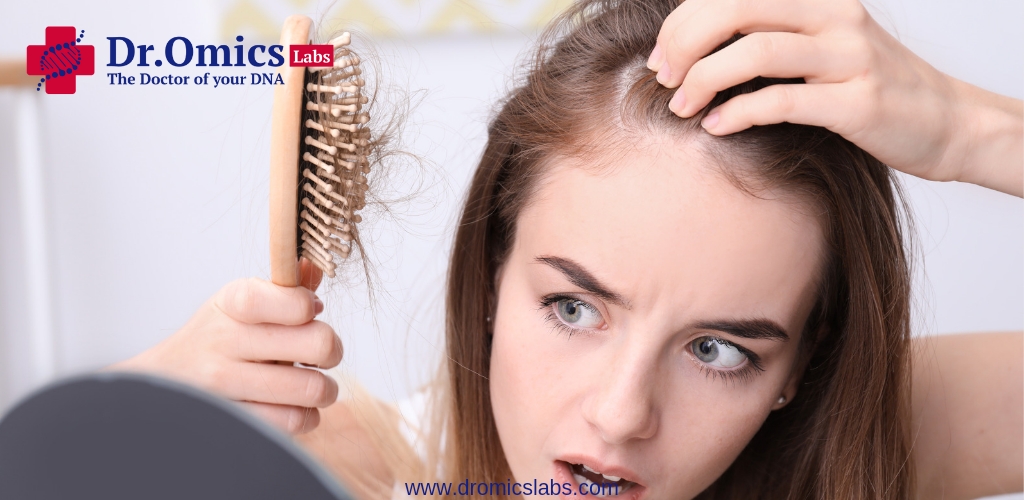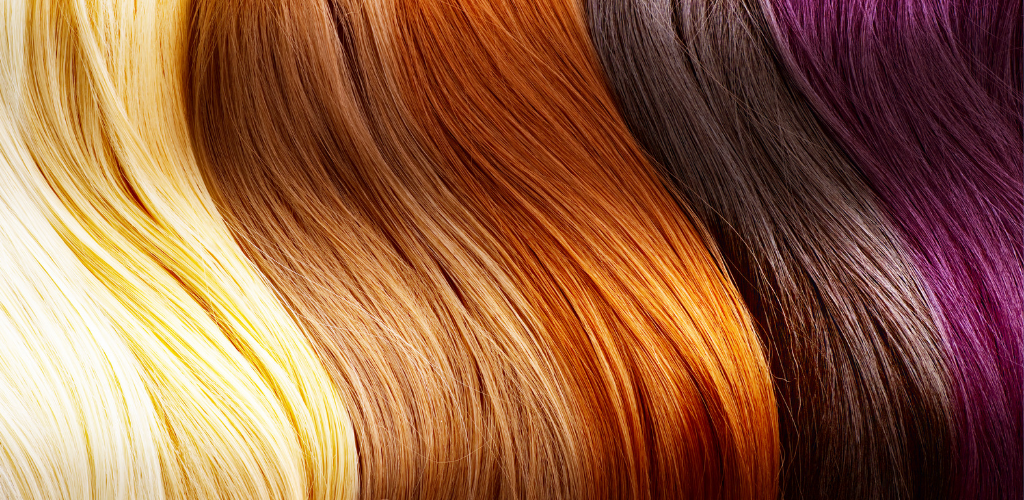Hair loss is a common concern that affects individuals of all ages and genders. While genetic factors play a significant role in hair loss, environmental triggers can also contribute to this condition. Understanding the interplay between genetics and environmental factors is crucial in addressing hair loss comprehensively. In this blog, we will delve into the intricate relationship between environmental triggers and genetic hair loss, exploring how both factors influence the onset and progression of this condition.
Genetic Hair Loss
Genetic hair loss, known as androgenetic alopecia, is a hereditary condition that affects both men and women. This type of hair loss is characterised by a gradual thinning of the hair and follows predictable patterns, such as receding hairlines and bald spots. Research indicates that genetic predisposition plays a vital role in the development of androgenetic alopecia, with studies showing that over 80% of noticeably balding individuals have a family history of hair loss.
Environmental Triggers
Environmental factors can exacerbate hair loss and contribute to its onset. Pollution, lifestyle choices, stress levels, exposure to harmful substances, and poor nutrition are among the environmental triggers that can influence hair health and growth[4][5]. For instance, pollutants in the air can affect hair proteins, leading to oxidative stress and hindering the hair growth process[5]. Additionally, high stress levels can disrupt the hair growth cycle, resulting in hair loss[3].
The Complex Interaction
Recent research has shed light on the intricate relationship between genetics and environmental factors in hair loss. While genetic predisposition sets the stage for hair loss, environmental triggers can accelerate or exacerbate the condition. Studies have shown that pollutants in the air can impact hair proteins, contributing to hair loss[4][5]. Moreover, high stress levels and unhealthy lifestyle choices can further aggravate genetic hair loss, highlighting the importance of addressing both genetic and environmental factors in hair loss management.
Comprehensive Treatment Approaches
To effectively address genetic hair loss influenced by environmental triggers, a holistic treatment approach is essential. This approach may include:
- Clinical Interventions: Consultation with healthcare providers to explore treatment options, such as medications like Finasteride and Minoxidil, which are clinically proven to treat hair loss.
- Lifestyle Modifications: Adopting a healthy lifestyle, including regular exercise, a balanced diet rich in essential nutrients, and stress management techniques, can promote overall well-being and support hair health.
- Environmental Awareness: Taking steps to minimise exposure to pollutants, harmful substances, and stressors can help mitigate the impact of environmental triggers on hair loss.
- Personalised Care: Working with healthcare professionals to develop personalised treatment plans that address both genetic and environmental factors contributing to hair loss.
By acknowledging the complex interplay between genetics and environmental triggers in hair loss, individuals can take proactive steps to manage this condition effectively. Through a combination of clinical interventions, lifestyle modifications, and environmental awareness, individuals can optimise their hair health and well-being, leading to a more holistic approach to addressing genetic hair loss influenced by environmental factors.
How can environmental factors be managed to prevent hair loss ?
Environmental factors can significantly contribute to hair loss, but there are several steps you can take to manage them and prevent further hair loss:
- Protect your hair from pollution: Regularly wash your hair to remove pollutants, use clarifying shampoos to deep clean, and protect your hair from harmful UV rays.
- Maintain a healthy diet: Ensure you get adequate protein, vitamins, and minerals through a balanced diet to support hair health and growth. Nutrients like biotin, zinc, and iron are particularly beneficial for hair.
- Manage stress levels: High stress can disrupt the hair growth cycle and lead to hair loss. Practice stress management techniques like exercise, yoga, or meditation to promote hair health.
- Avoid harmful substances: Smoking, excessive alcohol consumption, and certain medications can contribute to hair loss. Quit smoking, limit alcohol intake, and discuss potential side effects with your healthcare provider.
- Use gentle hair products: Avoid harsh chemicals and opt for gentle, sulfate-free hair products to prevent further damage and dryness.
- Drink plenty of water: Stay hydrated by drinking enough water to maintain healthy hair and scalp.
- Consult a dermatologist: If you are concerned about hair loss, seek professional help from a dermatologist or trichologist. They can provide a diagnosis, identify the underlying causes, and recommend personalised treatment options.
By implementing these strategies and making lifestyle changes, you can effectively manage environmental factors and reduce their impact on your hair health. Remember, addressing both genetic and environmental factors is crucial for preventing and treating hair loss.
References:
[1] Sons. (n.d.). Answered: Is hair loss genetic or environmental? Retrieved from <https://sons.co.uk/blogs/journal/answered-is-hair-loss-genetic-or-environmental>
[2] Premier Plastic Surgery PA. (n.d.). Genetics and Environmental Factors Impact Hair Loss in Women. Retrieved from <https://www.premierplasticsurgerypa.com/blog/genetics-environmental-factors-impact-hair-loss-women/>
[3] Medical News Today. (n.d.). How air pollution may lead to hair loss. Retrieved from <https://www.medicalnewstoday.com/articles/326613>
[4] Nashville Hair Doctor. (n.d.). Is Hair Loss Genetic, Environmental, or Both? Retrieved from <https://nashvillehairdoctor.com/hair-loss/hair-loss-both-genetic-environmental/>
[5] Dr. Health Clinic. (n.d.). Hair Loss Due To Pollution And Environmental Factors. Retrieved from <https://www.drhealthclinic.com/hair-loss-due-to-pollution-and-environmental-factors/>
Citations:
[1] https://sons.co.uk/blogs/journal/answered-is-hair-loss-genetic-or-environmental
[2] https://nashvillehairdoctor.com/hair-loss/hair-loss-both-genetic-environmental/
[3] https://www.premierplasticsurgerypa.com/blog/genetics-environmental-factors-impact-hair-loss-women/
[4] https://www.medicalnewstoday.com/articles/326613
[5] https://www.drhealthclinic.com/hair-loss-due-to-pollution-and-environmental-factors/




